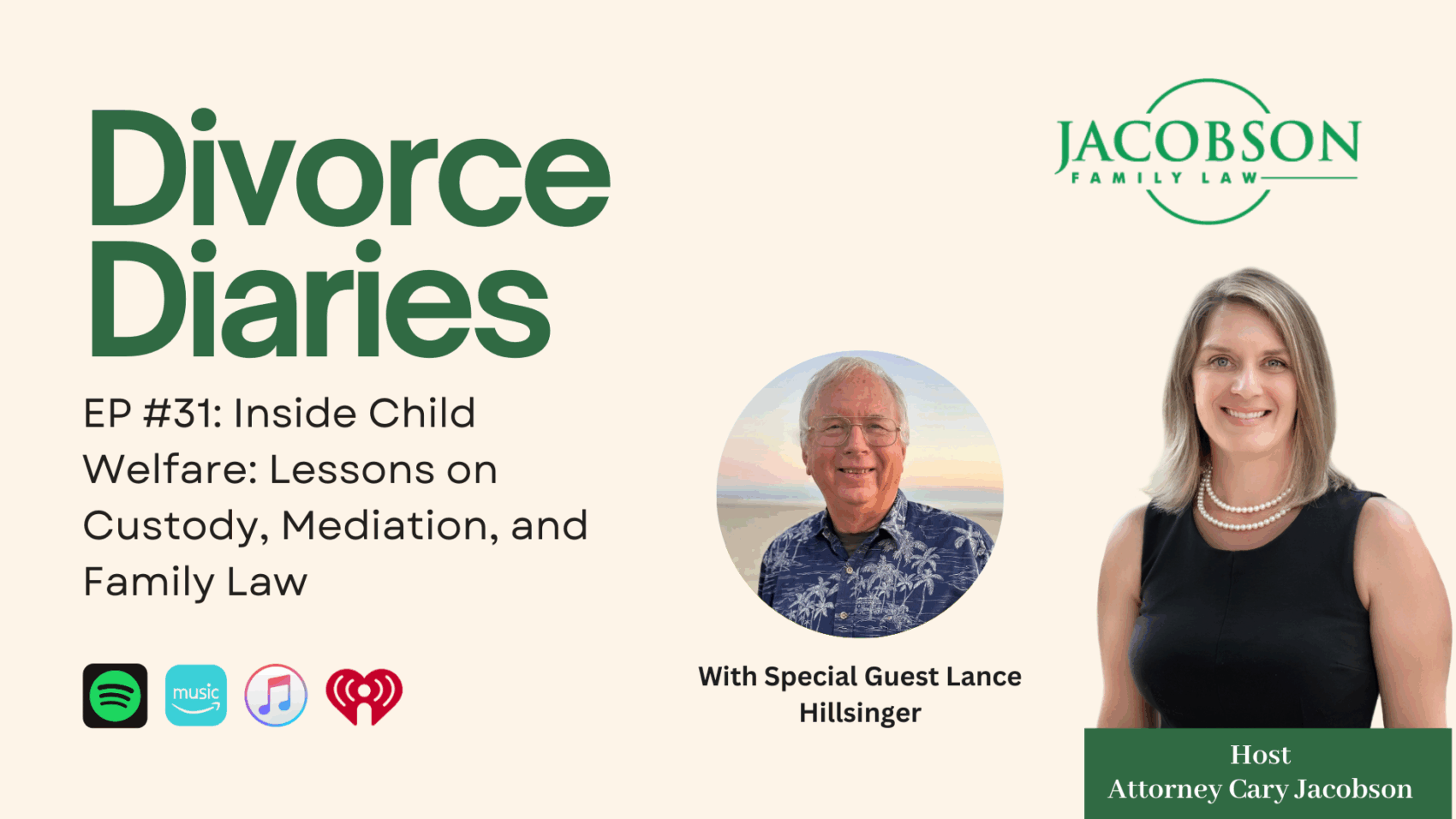
Family law disputes that involve child protective services are among the most challenging cases a family can face. Cary Jacobson, divorce attorney, mediator, and advocate for out-of-court resolutions, recently sat down with Lance Hillsinger, a child welfare social worker with more than 30 years of experience. Over the course of his career, Hillsinger handled hundreds of juvenile court cases, participated in countless mediations, and authored In Place of a Parent: Inside Child Protective Services, offering a rare look into the realities of the system.
Drawing from his decades on the front lines, Hillsinger shares valuable insights into how child welfare law has evolved, the role of social workers in protective custody cases, and why mediation can be such a powerful tool for families in conflict.
The Role of Child Protective Services in Custody Cases in Maryland
When a child in Maryland is removed from their home due to safety concerns, either by Child Protective Services (CPS) or law enforcement, the legal process moves quickly. Under Maryland law, the Department of Social Services files a petition for shelter care, and a hearing must be held within 24 hours to determine whether the child should remain in state custody.
The court’s primary goal is to protect the child while also evaluating whether reunification with the parents is possible. Just as in many other states, Maryland law prioritizes relative placements over foster care, meaning children are often placed with family members when safe and appropriate.
Challenges and Gaps in the System
While Maryland’s child welfare system has improved over the years, challenges remain:
-
Access to Counsel: Parents in Maryland are entitled to court-appointed counsel in juvenile dependency cases, but high caseloads can limit the effectiveness of representation.
-
Limited Father Resources: While programs exist to support mothers in treatment while keeping custody of their children, there are fewer equivalent resources available to fathers.
-
Record Access Limitations: Custody and divorce records across counties can be difficult for social workers to obtain quickly, delaying case decisions.
-
Unrepresented Parents: Many parents in family law cases represent themselves, making it difficult to navigate the complex legal system effectively.
Substance Abuse and Its Role in Neglect
In Maryland, as in much of the country, the majority of juvenile court cases stem from neglect rather than physical abuse, with substance abuse being a major underlying factor. Two-thirds of cases are tied to issues like drug or alcohol dependency.
While mental health support for children is typically available, parents often face financial or logistical barriers to accessing their own treatment, even though it is critical to reunification efforts. Case plans, introduced early in the process, provide a roadmap for parents to work toward regaining custody. These plans emphasize that reunification is the ultimate goal whenever possible.
Mediation: A Path Toward Cooperation and Healing
Mediation has emerged as a powerful alternative to litigation in Maryland child custody cases. Successful mediations often involve the parents, their attorneys, the social worker, and the county attorney.
Mediation sessions allow families to work toward agreements without prolonged court battles, reducing emotional strain on children. Even when agreements are not legally enforced, the mutual respect created in mediation often leads to lasting cooperation.
Practical Advice for Families in Conflict
This episode underscores several important lessons for families:
-
Normalize Life for the Child: Let children enjoy routines like school, sports, and family time, even during difficult transitions.
-
Prioritize Parental Support: Parents need accessible therapeutic resources to work toward reunification.
-
Encourage Father Engagement: Fathers should stay actively involved in the legal process, even if it feels intimidating.
-
Use Co-Parenting Tools: Apps like Our Family Wizard can reduce conflict by helping parents communicate respectfully and keep schedules organized.
Conclusion: Helping Families Heal with Clarity and Compassion
Navigating child custody cases involving Maryland CPS is never easy. But with mediation, transparency, and support systems in place, families can find paths that prioritize the well-being of children while encouraging cooperation over conflict.
If you’re facing family law challenges and need guidance tailored to your situation, visit jacobsonfamilylaw.com. For more expert insights and real-life stories, subscribe to Divorce Diaries: Lessons from the Trenches

